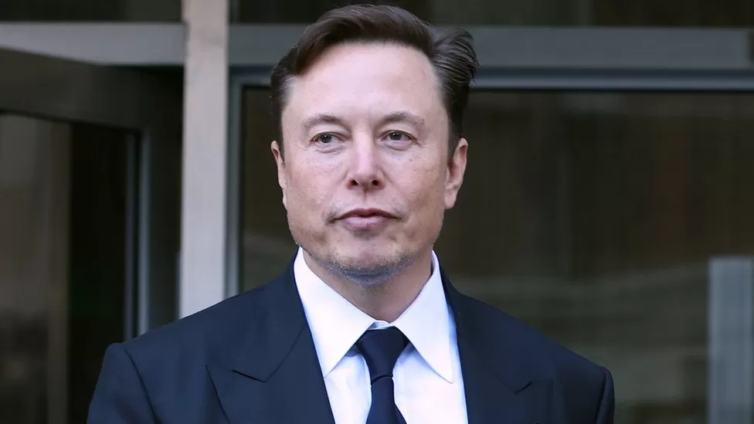Tech billionaire Elon Musk has claimed his Neuralink company has successfully implanted one of its wireless brain chips in a human.
In a post on X, formerly Twitter, he said "promising" brain activity had been detected after the procedure and the patient was "recovering well".
The company's goal is to connect human brains to computers to help tackle complex neurological conditions.
A number of rival companies have already implanted similar devices.
This includes the École Polytechnique Fédérale in Lausanne (EPFL), in Switzerland, which has successfully enabled a paralysed man to walk just by thinking.
That was achieved by putting electronic implants on his brain and spine which wirelessly communicate thoughts to his legs and feet.
Details of the breakthrough were published in the peer-reviewed journal Nature in May 2023.
There has been no independent verification of Mr Musk's claims, nor has Neuralink provided any information about the procedure he says has taken place.
BBC News has approached both Neuralink and the US's medical regulator, the Food and Drug Administration (FDA), for comment.
Neuralink has been criticised in the past, with Reuters reporting in December 2022 that the company engaged in testing which resulted in the deaths of approximately 1,500 animals, including sheep, monkeys and pigs.
In July 2023, the head of the US Department of Agriculture - which investigates animal welfare concerns - said it had not found any violations of animal research rules at the firm.
However, a separate investigation by the agency is ongoing.
Mr Musk's company was given permission to test the chip on humans by the FDA in May 2023.
That gave the green light for the start of the six-year study during which a robot is being used to surgically place 64 flexible threads, thinner than a human hair, on to a part of the brain that controls "movement intention", according to Neuralink.
The company says that these threads allow its experimental implant - powered by a battery that can be charged wirelessly - to record and transmit brain signals wirelessly to an app that decodes how the person intends to move.
In another post on X, Mr Musk said Neuralink's first product would be called Telepathy.
Telepathy, he said, would enable "control of your phone or computer, and through them almost any device, just by thinking".
"Initial users will be those who have lost the use of their limbs," he continued.
Referring to the late British scientist who had motor neurone disease, he added: "Imagine if Stephen Hawking could communicate faster than a speed typist or auctioneer. That is the goal."
While Mr Musk's involvement raises the profile of Neuralink, some of his rivals have a track record dating back two decades. Utah-based Blackrock Neurotech implanted its first of many brain-computer interfaces in 2004.
Precision Neuroscience, formed by a Neuralink co-founder, also aims to help people with paralysis. And its implant resembles a very thin piece of tape that sits on the surface of the brain and can be implanted via a "cranial micro-slit", which it says is a much simpler procedure.
Existing devices have also generated results. In two separate recent US scientific studies, implants were used to monitor brain activity when a person tried to speak, which could then be decoded to help them communicate.
Latest Stories
-
Let’s learn from ExxonMobil, high flyers must lead the way for mergers – AOMC Boss
16 mins -
‘Let industry players play the game ‘ – AOMC boss slams political interference in oil sector
29 mins -
‘So many regulations, yet corruption prevails’ – Dr Riverson Oppong on OMC oversaturation
38 mins -
At least 24 dead after two boats capsize off coast of Madagascar
1 hour -
Madina MP lauds White Chapel Youth Group for championing peace ahead of elections
2 hours -
Man United settle for draw at Ipswich Town in Amorim’s first game in charge
2 hours -
GPL 2024/2025: Prince Owusu screamer earns Medeama win over Young Apsotles
2 hours -
BBC visits mpox clinic as WHO says DR Congo cases ‘plateauing’
2 hours -
Burning old TVs to survive in Ghana: The toxic trade in e-waste
3 hours -
Perfume boss admitted he ignored Russia sanctions
3 hours -
Wicked proves popular as opening set to be biggest for Broadway film
3 hours -
Nominee for agriculture secretary completes Trump cabinet
3 hours -
ECG urges prepaid customers to top up to last one month ahead of system upgrade
3 hours -
Three more tourists named in Laos methanol deaths
4 hours -
Betway Africa offers a once-in-a-lifetime ‘Play-on-the-Pitch’ experience at Emirates Stadium
4 hours

